LONDON – Having won the jury prize at Cannes last year, there’s been much deserved hype surrounding the release of Brazilian feature Bacurau, and so naturally we were thrilled to be able to spend some time with the co-directors Juliano Dornelles and Kleber Mendonca Filho during their visit to London for the annual film festival. They discuss with us the roles they have taken on as ambassadors for their nation, and the film’s pertinent, political undercurrent. Oh, and we had to ask about working Udo Kier, which sounds like a helluva experience in itself.
Where did the idea for Bacurau spawn from?
Juliano Dornelles: Back in 2009 we were very happy at a film festival because Kleber won for a short film called Cold Tropics which I produced, which we made with his wife Emilie Lesclaux, who was also a producer. We saw many documentaries about people from faraway places in a way we didn’t believe very much, and we started to talk about this because it’s something that happens a lot in Brazil with favelas which are so populous.
Kleber Mendonca Filho: Which are mostly based in Rio or Sao Paolo.
JD: Yeah, and we just thought that we were talking a lot about genre films, because Cold Tropics was like a sci-fi film and we love genre films, we always wanted to make one. These two things together started Bacurau, we wanted to make a film about a portion of awesome people that we think are very interesting, and not simple, as they are usually portrayed. Those people we were meeting we were very surprised by.
KMF: But there was never a discussion on who would write and who would direct the film, we were always working together.
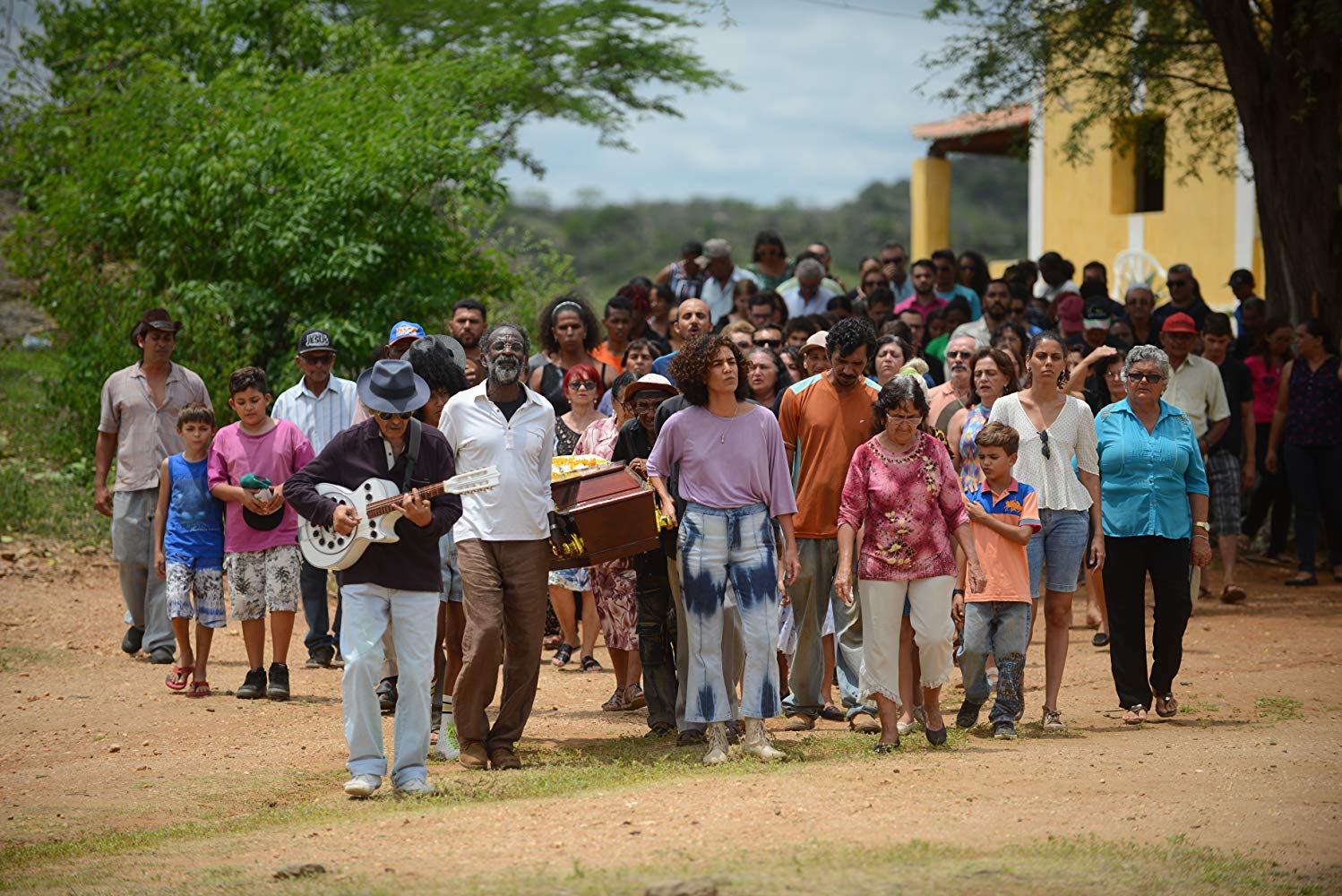
I got the sense that there were some geographical and social nuances that are specific to Brazil, and yet Bacurau has played so well at festivals. What do you think is the universal appeal of the movie that allows for it to connect with people from around the world?
KMF: The same appeal that Asterix has, I think. The same appeal as a Western.
JD: Especially the spaghetti Westerns.
KMF: We discussed Pale Rider from 1985. It has the same set-up, a small community attacked by very bad people and then this rider comes into town to protect them, it’s a classic Western situation. I think from the feedback we’ve been getting for the film, it seems to be charismatic.
JD: It seems like we took the amount of right to choose those wonderful faces from the film, those actors and those extras. Though we never considered them to be extras. Another thing we worked hard in the script to make, were making all the small moments of each character memorable. It’s a film about a group of people that are not so usual. There’s curiosity too, because it’s very Brazilian and very honest about Brazilian contradictions and society, and then at the same time it’s a fucking Western.
KMF: It’s quite unflinching about Brazil. This has become the major topic of discussion, a major point of admiration for the film, a point of rejection for some people around the film. But very few, and usually very conservative and from the Right.
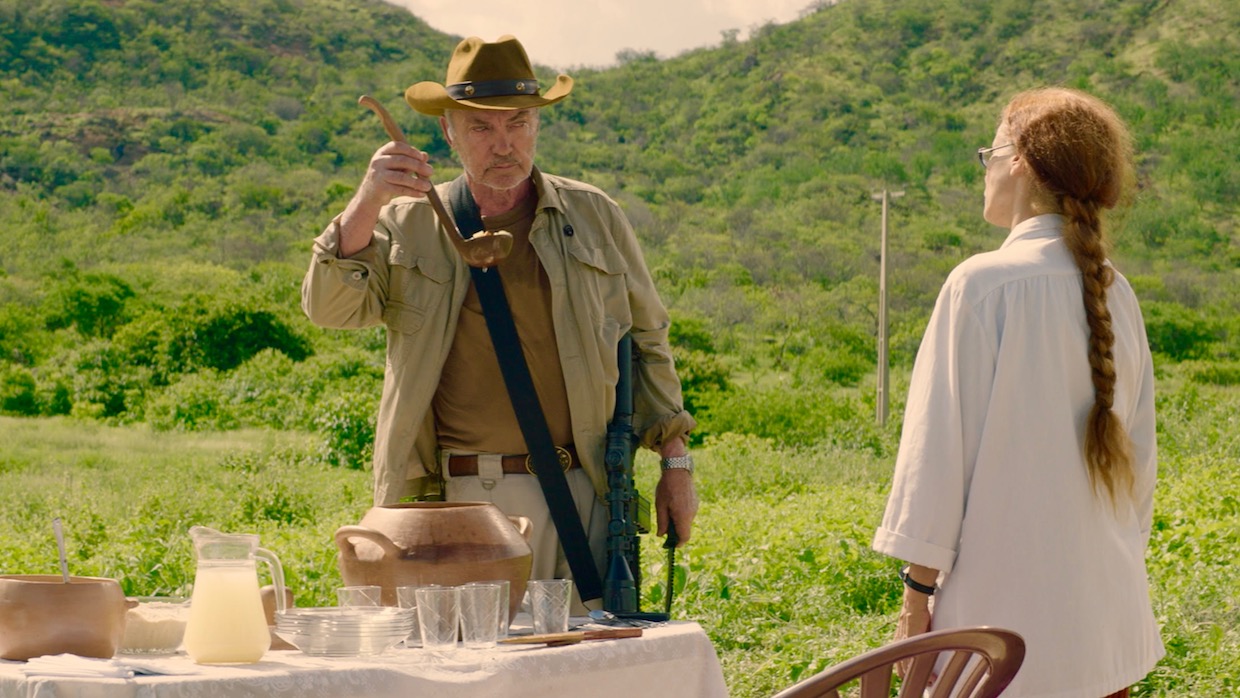
So how has Bacurau been received in Brazil?
JD: It became a phenomenon, a pop phenomenon. They keep doing fan arts about the characters. They just don’t get tired of talking about this film on Twitter and Facebook, every day. We’re just crossing the 600, 000 admissions in theatres. It’s a good thing.
KMF: Since Cannes a lot of critics were writing non-stop about the film before it opened. Then they kept writing about the film once it opened, and then three weeks in the critics finally stopped writing, and then all kinds of people started writing about the film. Academics, political scientists, policemen, politicians, former presidents.
Do you like that?
JD: Of course. It’s beautiful. It means the film is a fucking success!

It seems Brazil, a bit like England, is going through a tumultuous time politically. Do you feel a responsibility as filmmakers to be a voice, and represent your nation’s underdogs in some regards?
JD: Maybe Kleber feels differently from me, but I wasn’t expecting to go on this, but it’s happening actually, we’re representing the country everywhere we go and we are representing it in a very positive way because we’re doing art and doing culture, and in the opposite situation is the Government, led by very complicated human beings, to say the least, that only care about destruction.
KMF: It is a role I accept very naturally. Of course when you get invited to the Cannes Film Festival, and they put you in a limousine and give you a press conference and you get a great, wonderful award and you’re invited to the New York Film Festival, then to London, to Munich and Australia, it becomes very natural to become a diplomat. Even if you’re not, you’re representing your culture, this is what Brazil can do, these are the Brazilian people, this is Brazilian music, this is a Brazilian film, completely in-line with American films and Italian cinema, and with wonderful Brazilian actors, American actors. This is what we do, and fuck you. We do it very naturally.
JD: For me I feel very safe to be on his [points at Kleber] side. He’s very good on it, and I can see that and I can learn a lot with him. I’m in a very comfortable position, and he is also in a comfortable position because we did a film that people seem to like very much.
KMF: But right now there is kind of a nasty vibe to being an artist in Brazil. There’s a lack of respect and there’s contempt for the idea of somebody just having an idea, an opinion. This is something that I just cannot understand. The film is a film, it’s a very honest film in terms of what we think and how we see the world and how we see people, I’m not a misanthrope and neither is Juliano. I’m sceptical of people and society, and that’s in my film, and I am very proud of the film. This has been happening since Neighbouring Sounds and it happened a lot in Aquarius, you make a film, just an honest film, and people take it as kind of a political statement. I don’t think it is. We had a question two weeks that said, ‘So Sonia Braga’s character is married to a woman, what kind of a statement is that? And it’s like, well…
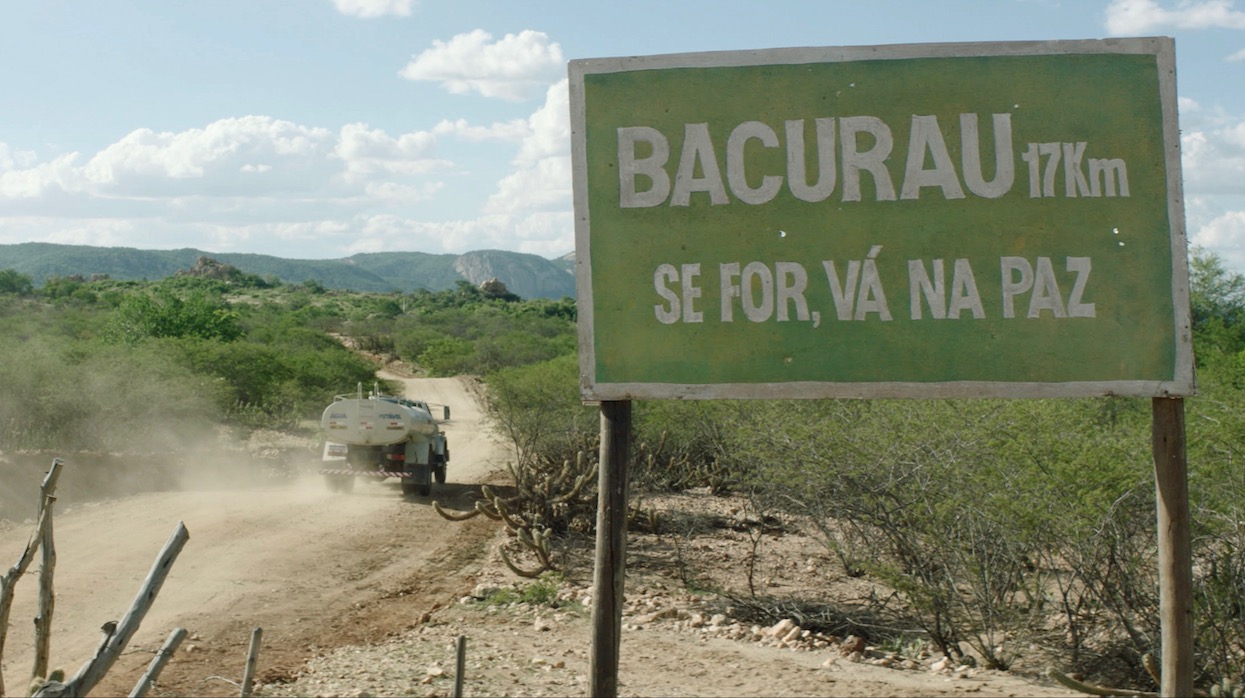
That was my next question!
JD: [Laughs] Don’t do this man!
KMF: Some women are married to other women. That’s a fact of life, it’s not a political statement. It’s complicated, because people try to put you in a box.
In Toronto two years ago I interviewed Udo Kier, and it was one of the most enjoyable experiences of my life.
JD: We agree with you!
KMF: You’ve been bitten by the bug.
I truly have. He’s mad, in the most brilliant way possible. It must’ve been great fun having him around on the set of Bacurau?
JD: Exactly. That’s why he’s made 200 films.
KMF: I was lucky to have Udo stay near me, and I would come back from the set, after ten hours…
JD: 12 hours!
KMF: 12 hours on set. Kind of shattered, I’d go into the shower, and then think, finally, off to bed. Then the door knocks. I’d open the door, and he’d say, ‘let’s drink!’ I would say, ‘Udo? Alright.’ Then I’d go and I’d say, so… tell me about Fassbinder.
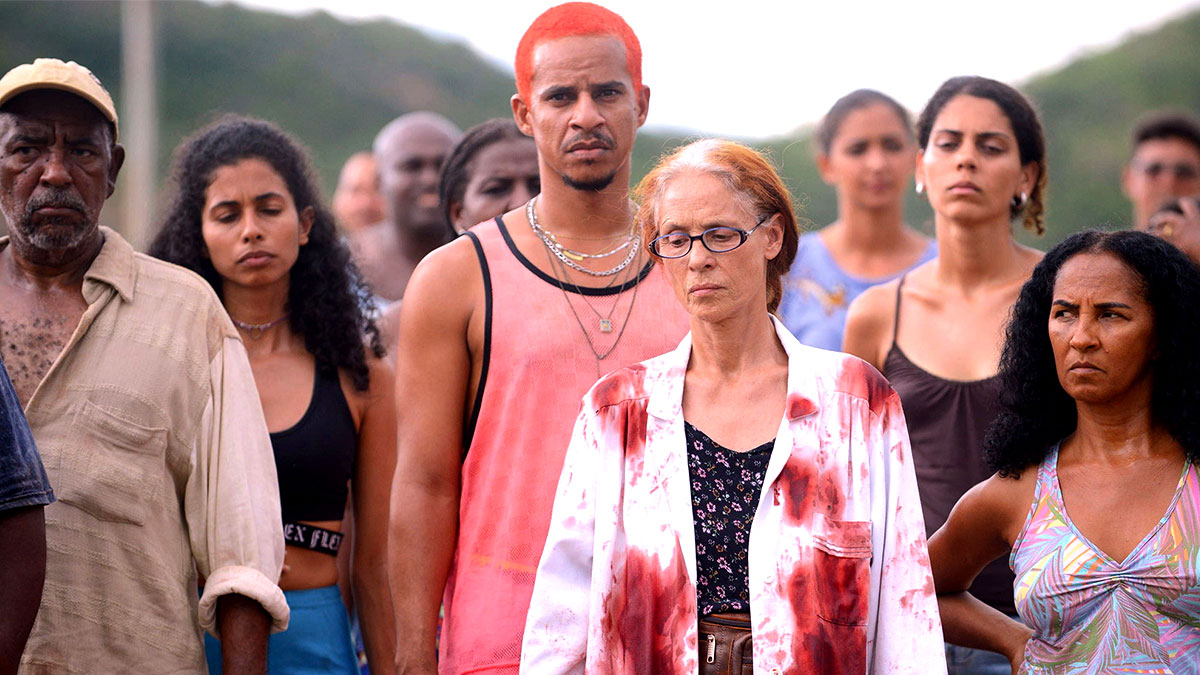
He’s brilliant in Bacurau, but everyone is, it’s a real ensemble piece. Were you casting locals for this?
JD: Yeah we did and we did because every film we do we want to have interesting people with awesome personalities and awesome faces. It’s not like following a traditional way of making films with only professional actors. Of course we need those professional actors, but we need good people, that’s what I mean.
KMF: I’m not sure that’s a criteria that happens in a lot of films, to just want good people, people we like. And of course people who are great in front of the camera. It’s not like we only want people who are great in front of the camera and are arseholes, we want great people to work with.

You forget that movie making is about enjoying yourself, we lose sight of that don’t we?
JD: Yeah man.
KMF: This is exactly my point. I have been very lucky, I have mostly only had great experiences. Making a film is extremely hard.
JD: We had a crew of 150 people, cast and crew. And I don’t remember one single person that I don’t like anymore, after having been together for almost five months.
KMF: This is quite rare.
JD: It is completely rare. We’re lucky, what can I say, we have a good eye.


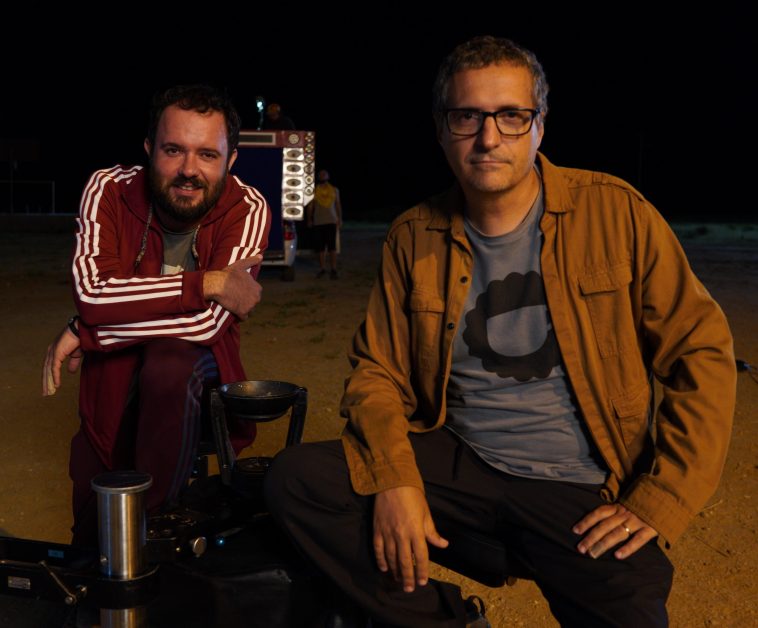





Leave a Comment